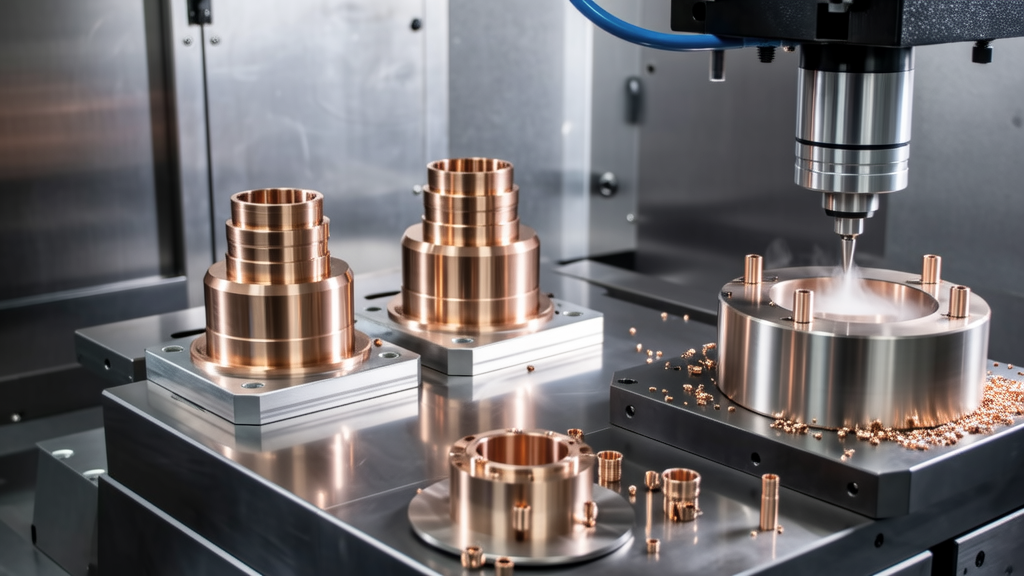Understand Your Needs
Before you start reaching out to potential suppliers, it’s essential to know what you need. Are you looking for a specific type of machining? For example, do you need precision parts made from aluminum, or are you working with more complex materials? Knowing what you want will guide you in finding the right supplier.
Think about the size, volume, and complexity of the parts you need. If you’re not sure, I suggest making a short list of your project requirements, including details like tolerances, material types, and quantities. This way, you can clearly communicate your needs when speaking with a supplier.
Research and Shortlist Suppliers
Once you’ve defined your requirements, it’s time to start researching suppliers. The internet is full of resources, but not all suppliers are created equal. I often found success using industry directories and forums where businesses share their experiences. Websites like ThomasNet or Alibaba can help you find manufacturers, but always check reviews.
Create a shortlist of suppliers based on their specialization in CNC machining and manufacturing capabilities. It helps to narrow it down to five suppliers – this way, you’re not overwhelmed by too many options. Just remember to consider their experience and reputation in the industry. A company with years of proven expertise will likely be more reliable than a newer one.
Reach Out and Ask Questions
Don’t be afraid to reach out and ask potential suppliers questions that matter to you. Here’s a few to consider:
When I was doing this, I found that suppliers who took the time to answer my questions with detailed responses often showed a higher level of professionalism and care in their work.
Compare Quotes and Production Capacity
Once you’ve gotten a few quotes, it’s time to compare them. Make sure to look beyond just the price. While it might be tempting to go for the cheapest option, consider the total value of what they offer. Pay attention to factors like:

Additionally, assess their production capacity. If you have a large order, make sure they can handle it without compromising quality. You wouldn’t want to end up in a situation where your supplier can’t meet your demands.
Build a Relationship
After you’ve selected a supplier and started working together, it’s important to build a relationship with them. A good rapport can lead to better service, flexibility in prices, and improved communication. I often find that suppliers appreciate when you treat them as partners rather than just another vendor.
Here, honest feedback is vital. Let them know if you’re happy with the quality of the products and the service. If issues arise, discussing them openly can help improve the partnership moving forward.
Trust and Verify
Finally, trust is key. Always make sure to verify your supplier’s credentials and capabilities. Ask for certifications or reference clients who can attest to their reliability. A supplier that is ISO certified or complies with industry standards can give you better assurance of their quality and adherence to regulations.
When I sourced components, I made it a practice to request third-party audits or visit their facility if possible. A genuine supplier will welcome your interest in their quality processes.
Following these steps can simplify your search for CNC machining suppliers in Shenzhen. When you know what you want, research diligently, ask the right questions, and build strong relationships, you’re set to make a good decision that can benefit your projects for years to come. If you give these tips a try, I would love to hear how it goes!

What should I consider when understanding my CNC machining needs?
To effectively communicate with suppliers, it’s crucial to define your machining requirements clearly. Ask yourself what materials you’ll use, whether it’s aluminum or something more complex, and the tolerance and size specifications for your parts.
Also, think about the volume of parts you need. Having a clear list will help you articulate your needs when you reach out to suppliers, making the process smoother.
How do I research and shortlist CNC machining suppliers in Shenzhen?
Start by using online directories and forums that focus on manufacturing. Websites like ThomasNet or local industry directories can provide a solid list of suppliers.
Pay attention to their specialties and experience. Create a shortlist of around five suppliers who seem to fit your needs, so you’re not overwhelmed by choices.
What should I ask suppliers when I contact them?
When reaching out, it’s really important to ask detailed questions. Inquire about production lead times, sample availability, and quality control measures they have in place.
Asking these questions can highlight the level of professionalism and reliability of each supplier, giving you a clearer picture for comparison.
How can I compare quotes effectively from different CNC suppliers?
When you get quotes, compare not just the prices but also look into what each quote includes. Check the material costs, setup fees, and any additional shipping charges that may apply.
Also consider the suppliers’ production capabilities to ensure they can handle your order size and complexity without sacrificing quality.
Why is building a relationship with my CNC supplier important?
Building a relationship with your CNC supplier can lead to better service and flexibility. Suppliers often respond better to clients who see them as partners rather than just vendors.
Honest communication about your satisfaction levels helps create a positive working environment that benefits you both in the long run.



